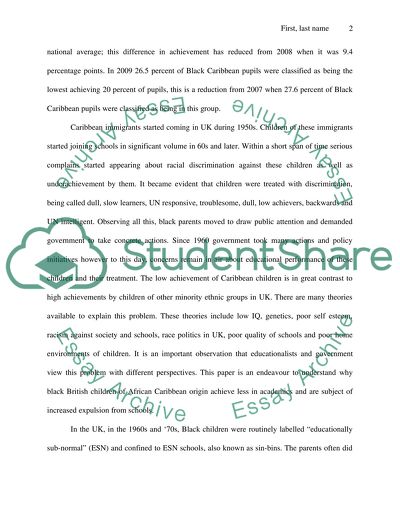Cite this document
(“Are Black Afro Caribbean boys underachieving within the Education Dissertation”, n.d.)
Retrieved from https://studentshare.org/family-consumer-science/1415580-are-black-afro-caribbean-boys-underachieving
Retrieved from https://studentshare.org/family-consumer-science/1415580-are-black-afro-caribbean-boys-underachieving
(Are Black Afro Caribbean Boys Underachieving Within the Education Dissertation)
https://studentshare.org/family-consumer-science/1415580-are-black-afro-caribbean-boys-underachieving.
https://studentshare.org/family-consumer-science/1415580-are-black-afro-caribbean-boys-underachieving.
“Are Black Afro Caribbean Boys Underachieving Within the Education Dissertation”, n.d. https://studentshare.org/family-consumer-science/1415580-are-black-afro-caribbean-boys-underachieving.


